The Ultimate Drill Bit Guide
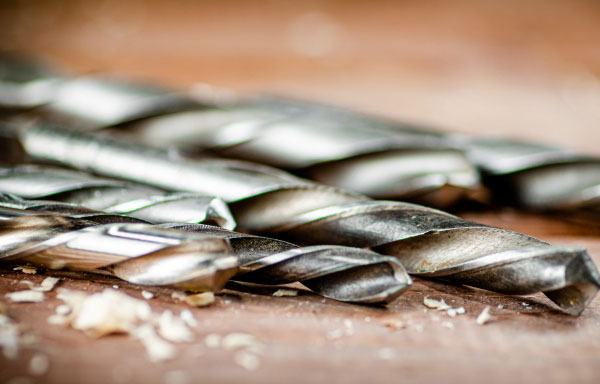
Choosing the Right Bits for Every Job
Why the Right Drill Bit Matters
On fast-paced job sites, every second counts. Using the wrong bit can:
- Increase wear on your tools
- Lead to inaccurate holes
- Cause material damage
- Waste valuable time
A well-organised, purpose-driven bit selection helps you stay on schedule, deliver consistent results, and maintain the professional standards clients expect.
1. Jobber Drill Bits – Your Everyday Workhorse
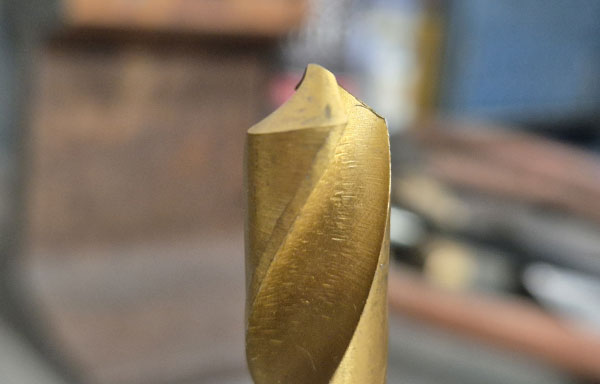
Ideal for: General-purpose drilling in metal, wood, and plastic.
Jobber drill bits are the backbone of most tradespeople’s kits. They strike the perfect balance between length and rigidity, offering versatility for a wide range of drilling tasks.
Roll-Forged vs. Ground Flute Jobber Bits
- Roll-Forged Jobber Bits: Made by heating and rolling the steel to shape. These are generally more affordable and ideal for lighter-duty work. However, they tend to have a slightly rougher flute surface, which can slow chip evacuation and reduce drilling efficiency over time.
- Ground Flute Jobber Bits: Precision-ground from solid metal stock. These offer much higher hardness and wear resistance, sharper cutting edges, smoother flutes, and tighter manufacturing tolerances. This means cleaner holes, better heat dissipation, and a much longer tool life.
HSS vs. Cobalt Jobber Bits
- HSS Jobber Bits (High-Speed Steel): Perfect for general drilling in materials like mild steel, hardwood, and plastic. Cost-effective and widely used.
- Cobalt Alloyed (5–8%): Best suited for hard metals like stainless steel. The cobalt infusion increases heat resistance, helping maintain sharpness during prolonged use.
Pro Tip: For maximum efficiency, keep both roll-forged HSS and precision-ground cobalt bits in your kit. Use ground flute cobalt bits when accuracy and longevity matter most, especially when drilling harder materials.
2. HSS Drill Bit Sets – Organised Efficiency
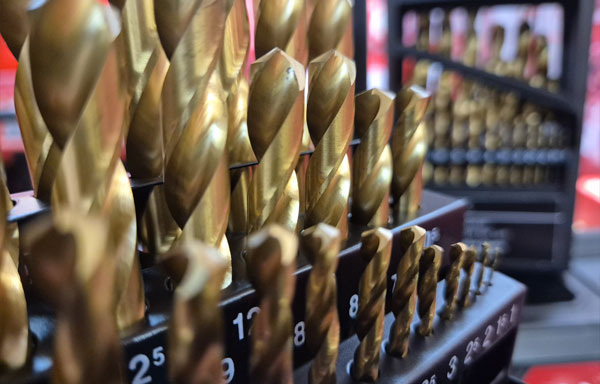
Ideal for: Quick access to the right-sized drill bit diameter in metal and wood.
Time lost searching for the right bit adds up. HSS drill bit sets, with a wide size range and labelled case, keeps everything within reach. Sets are ideal for:
- Making on-the-fly adjustments
- Reducing interruptions
- Preventing mismatched or worn-out bits
Pro Tip: A compact, portable drill bit set streamlines your setup and boosts productivity on every job.
3. Flat Wood Boring Bits – Fast, efficient cuts
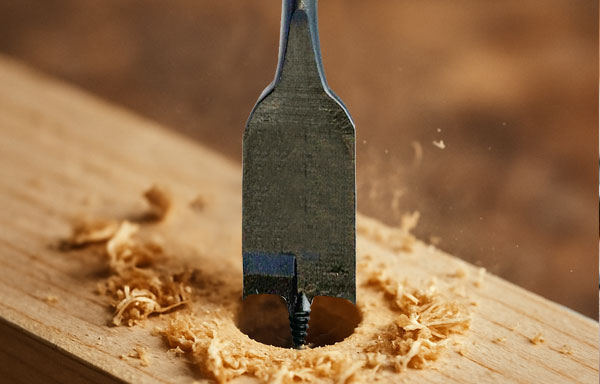
Ideal for: Fast and accurate drilling in softwoods and treated timber.
Flat wood boring bits, also known as spade bits, are essential for rough carpentry, electrical, and plumbing work. They excel at creating large diameter holes quickly – ideal for running conduit, pipework, or wiring through joists and studs.
Features to look for:
- Threaded, pointed tips: Help keep the bit centred during drilling, and assists in pulling the bit into the workpiece
- Spurs or cutting edges: Reduce tear-out, splintering, and provides a cleaner hole
- Chrome or black oxide coatings: Improve longevity and resistance to rust.
- The Maxitek range of Flat Wood Boring Bits has all the features above, and are available either individually, in packs of 3, or an 8-piece flat wood boring bit set containing eight of the most popular sized bits packed in a tough case.
Pro Tip: Keep these bits sharp and avoid excessive drilling speeds to prevent heat build-up and burning.
4. SDS Plus Hammer Drill Bits – Power Meets Precision
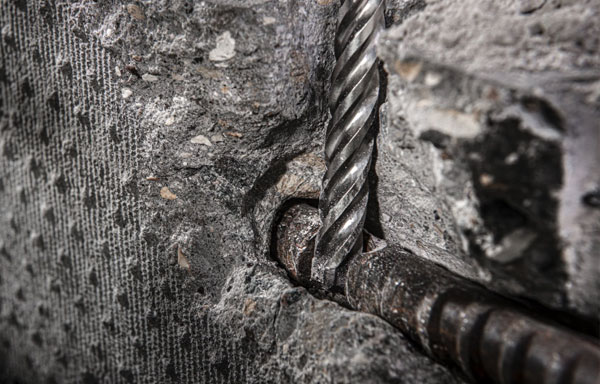
Ideal for: Drilling into concrete, brick, and masonry
When working with masonry, SDS Plus bits are indispensable. Their slotted shank design locks into compatible SDS plus rotary hammer drills, offering superior energy transfer and fast hammer-action drilling with no drill bit slippage.
Twin Cutter vs. Quad Cutter SDS Bits
- Twin Cutter: Features two cutting edges and is ideal for everyday masonry tasks. They clear debris well and drill quickly through bricks, blocks, and concrete. To differentiate between high quality and poorly manufactured twin flute SDS drill bits, check the carbide used is reputable, such as Ceratizit.
- Quad Cutter: With four cutting edges, these bits are designed for precision anchoring, smoother holes, and improved concentricity – especially in reinforced or harder concrete. They also reduce vibration and bit wander, giving you cleaner results and less fatigue.
Why the PGM Mark Matters
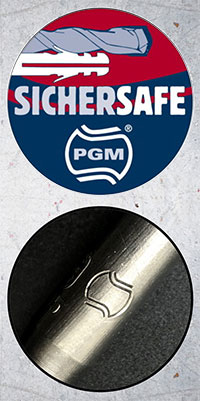
The PGM Prüfgemeinschaft Mauerbohrer certification mark isn’t just a logo, it’s your guarantee of quality and accuracy. Here’s why it’s critical:
- Hole Tolerance: Bits with the PGM mark are manufactured to strict tolerances. This is essential for setting expansion anchors or chemical fixings, where hole accuracy directly affects load strength and safety.
- Safety Compliance: Many construction sites and structural engineering standards require PGM-certified bits for anchor holes.
- Durability: PGM-rated bits are tested for longevity and precision across a range of masonry types, so you can trust them on tough jobs.
Pro Tip: Always check for the PGM mark when drilling anchor holes. It’s a small detail that prevents major problems – especially for safety-critical installations.
Choose Smarter, Work Faster
An efficient tradesperson isn’t just fast – they’re accurate, organised, and adaptable. With the right drill bits at your disposal, you can:
- Reduce setup and tool-change time
- Achieve cleaner, more accurate holes
- Extend the life of your bits and drills
- Maintain professional standards under pressure

Digital Sales Manager, Protrade
Alan has almost 13 years of experience as a customer service advisor at Protrade. Alongside Alan’s customer service role, he is a staff trainer and content creator, who you will typically see across Protrade’s social media channels.



